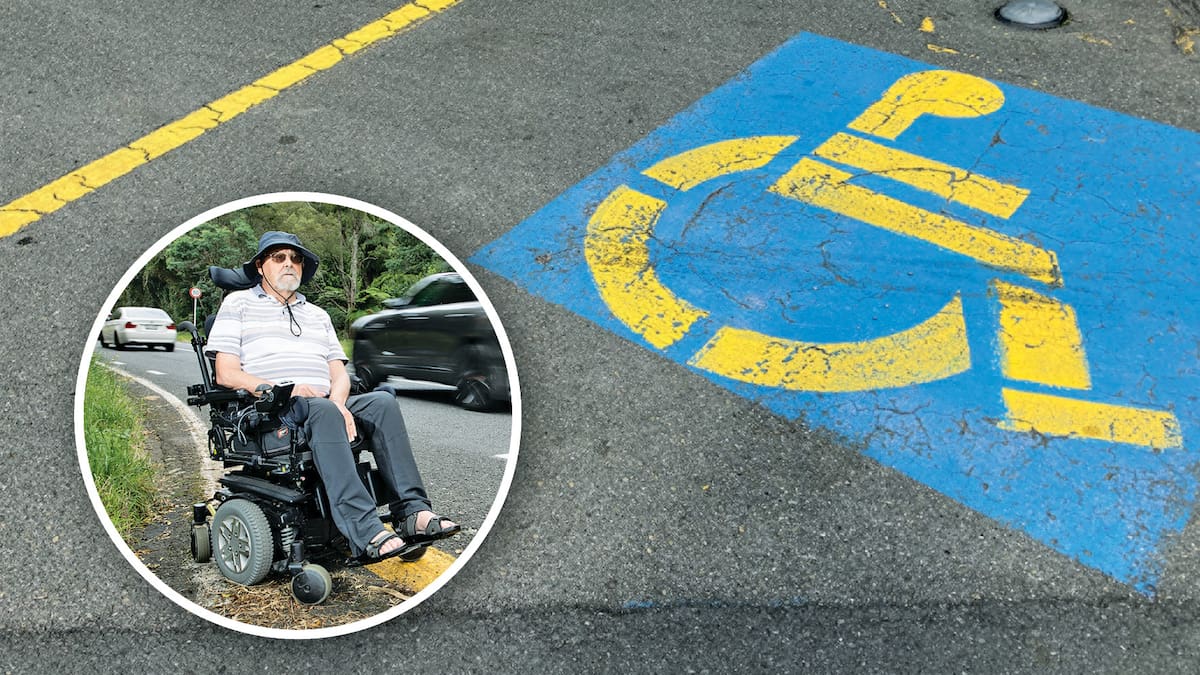Rotorua resident and accessibility advocate Roger Loveless told Local Democracy Reporting it was step in the right direction and “long overdue”.
Loveless hoped it would lead to “less aggression” from parking culprits when they were reported, and would provide a greater incentive for people to report them.
He believed it would help to keep public mobility parks clear for those who needed them, but said it often happened when parking wardens were not working.
“People do abuse them [the parks].”
His understanding was that people using the parks were anticipating being gone for a short time — “I’m only going to be a couple of minutes” sort of thinking.
Other common issues were people limiting access to vehicles in mobility spaces by parking too close, blocking access to side doors or parking over footpaths.
Rotorua Lakes Council updated its website to reflect the change on Tuesday.
“All councils in New Zealand are required to use these new fees and can no longer make any amendments for their own territories.”
While the mobility parking fee increase was the largest, Rotorua’s most commonly issued infringement was for overstaying the time limit or failing to pay at all.
The fine for overstaying for less than 30 minutes will increase from $12 to $20, while not paying in a paid park would rise from $40 to $70.
The council website stated there were at least two mobility parks in each street in the CBD.
Mobility card holders could use dedicated mobility spaces for as long as they wanted without paying. All other car parks could be used by mobility card holders, without having to pay, for double the amount of time specified except for P15 spaces.
Upston said at the time of the announcement the Government needed to “get tough on this selfish behaviour” of misused mobility parks to level the playing field for disabled people by helping to prevent disruptions in their day-to-day lives.
She called parking in an area reserved for disabled people the “epitome of arrogance”.
“Parking infringement fees have not been updated in two decades, making councils’ role in managing public parking increasingly difficult.
“For example, in Auckland, this has meant that paying a parking ticket is sometimes cheaper than paying for parking.”
Last year, Rotorua’s council doubled parking fees from $1 to $2 per hour.
CCS Disability Action administers the Mobility Parking scheme and has 170,000 permit holders in the country.
There are 2740 permit holders in Rotorua district.
CSS access and infrastructure national manager BJ Clark said at the time of the announcement mobility parking abuse was rife.
“Research we commissioned showed that nearly one-third of users of mobility parking spaces do not have a permit to do so legally. This widespread abuse highlights a severe lack of understanding and respect for the importance of mobility parking. [This] announcement changes that. Hopefully people will think twice before taking a park they have no right to use.”
Laura Smith is a Local Democracy Reporting journalist based at the Rotorua Daily Post. She previously reported general news for the Otago Daily Times and Southland Express, and has been a journalist since 2019.
– LDR is local body journalism co-funded by RNZ and NZ On Air.





